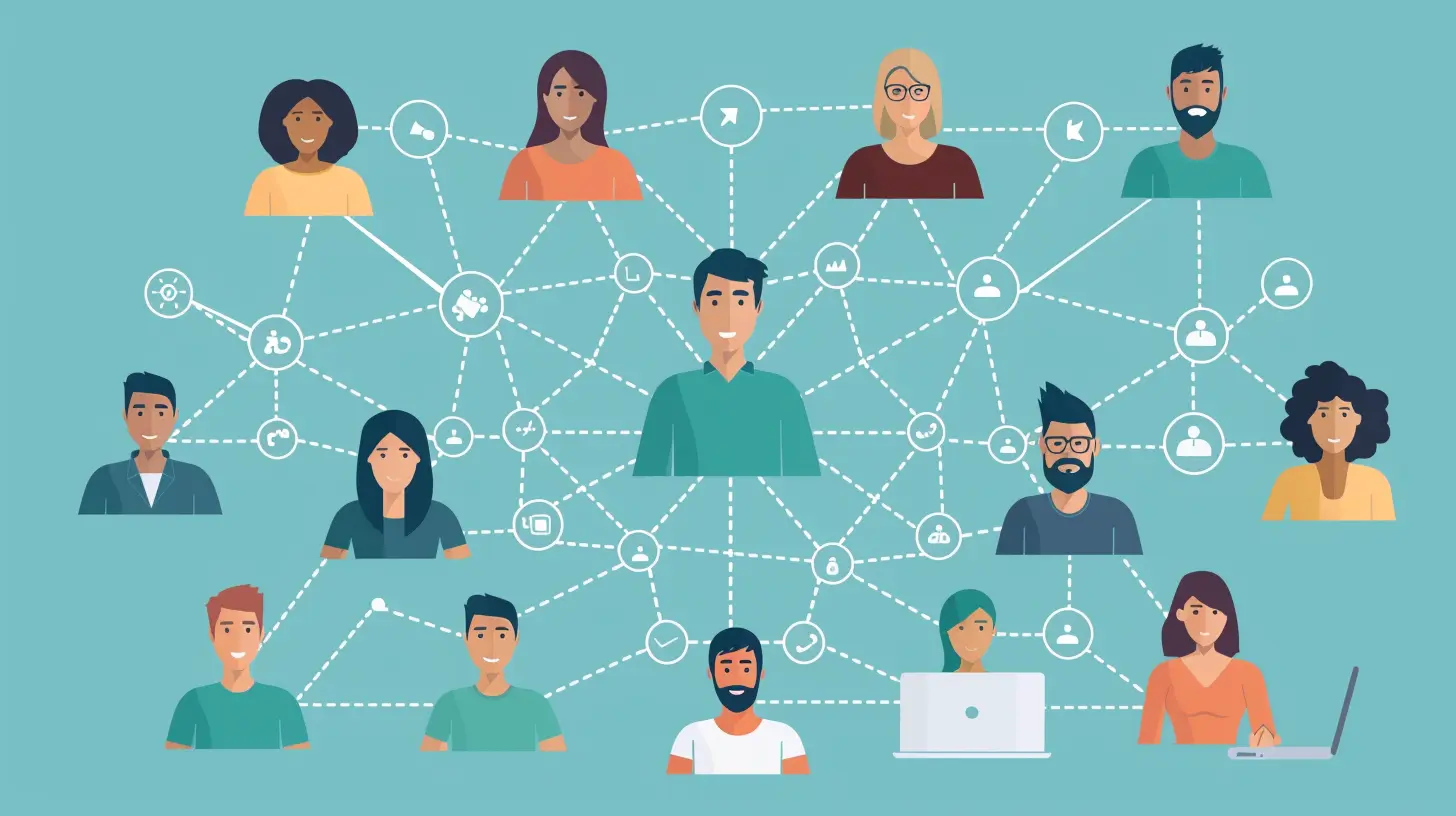How to Build a Professional Network Through Online Learning
8 August 2025
In today's digital world, networking isn't just about handing out business cards or attending conferences. With online learning platforms booming, building a professional network has never been easier—or more powerful. Whether you're looking for job opportunities, industry connections, or mentorship, online learning can be your secret weapon.
But how exactly do you turn a virtual classroom into a thriving network? Let’s break it down.

Why Networking Through Online Learning Matters
Before we get into the "how," let's talk about the "why."1. Access to Industry Experts – Many online courses are taught by professionals with years of experience. Engaging with them can open doors to valuable insights and contacts.
2. Global Connections – You're not just limited to local professionals. Online learning connects you with people from around the world.
3. Career Growth – Many job opportunities arise from networking. The more people you connect with, the more chances you have to land your dream job.
4. Peer Learning – Learning from fellow students is just as important as learning from instructors. They may have experiences and perspectives that can help you grow.
Now that we know why it matters, let’s dive into the practical steps.

1. Choose the Right Online Learning Platform
Not all platforms are created equal. If you want to network while learning, pick platforms that encourage interaction. Some great options include:- LinkedIn Learning – Built for professionals, this platform integrates with LinkedIn, making networking seamless.
- Coursera & edX – These offer university-level courses with discussion forums and peer interactions.
- Udemy – While Udemy courses are often self-paced, engaging in course Q&As and groups can help you connect.
- Skillshare – Perfect for creatives, this platform lets you engage with fellow learners on various projects.

2. Engage in Course Discussion Forums
Most online courses have discussion boards or forums. Don’t just be a passive participant—get involved!- Ask Questions – Genuine curiosity can spark conversations.
- Answer Questions – Sharing knowledge positions you as a valuable connection.
- Start Conversations – Post discussion topics related to the course content.
The more active you are, the more likely people will recognize you and want to connect.

3. Connect With Instructors & Mentors
Your instructors are often industry leaders with extensive networks. But how do you connect with them without coming off as pushy?- Be Active in Discussions – If they notice your engagement, they’ll be more likely to respond.
- Reach Out Professionally – A polite email or LinkedIn message thanking them for their insights goes a long way.
- Ask for Advice – Instead of just asking for a connection, request guidance on a specific topic.
Building a relationship with an instructor can give you lifelong mentorship opportunities.
4. Collaborate With Fellow Learners
Think of your fellow students as future colleagues, employers, or partners. Here’s how to make the most of these connections:- Form Study Groups – Engage in virtual meetups via Zoom or Discord.
- Work on Group Projects – Many courses offer collaborative assignments.
- Stay in Touch – Add fellow learners on LinkedIn, follow their work, and keep the conversation going.
Many professionals have found business partners and lifelong friends through online learning communities.
5. Utilize Social Media for Networking
Don’t just rely on the course platform—take it to social media.- Join LinkedIn Groups – Many courses have dedicated LinkedIn groups where students and alumni connect.
- Follow Industry Hashtags – Engaging with trending topics can put you on the radar of industry professionals.
- Engage on Twitter or Reddit – Some instructors and students have active discussions on these platforms, making them great places to network.
Being active on social media helps solidify the connections you make in online courses.
6. Attend Live Webinars & Virtual Events
Many online courses offer live sessions with instructors and guest speakers. These are golden opportunities for networking.- Introduce Yourself in the Chat – A simple “Hi, I’m [Your Name], and I work in [Your Industry]” can start a conversation.
- Ask Thoughtful Questions – Memorable questions make you stand out.
- Follow Up After the Event – Send a LinkedIn request or email to continue the discussion.
Attending virtual events shows you’re serious about learning and connecting with others.
7. Create and Share Your Own Content
Want to get noticed? Start creating content related to your online learning experiences.- Write LinkedIn Articles or Blog Posts – Share what you’ve learned from the course.
- Post Course Takeaways – A short tweet or LinkedIn post summarizing key lessons can spark engagement.
- Make Video Reviews – If you’re comfortable on camera, a YouTube or TikTok review of the course can get attention.
By sharing your insights, you position yourself as someone worth connecting with.
8. Follow Up and Maintain Relationships
Networking isn’t about collecting contacts—it’s about building relationships. Once you connect with someone, nurture that relationship:- Check-In Periodically – A simple message asking how they’re doing goes a long way.
- Offer Value – Share articles, job postings, or any useful resources.
- Celebrate Their Wins – Congratulate them on achievements, promotions, or new projects.
Strong relationships can lead to job referrals, partnerships, and long-term professional growth.
9. Participate in Online Communities
Apart from course discussions, join online communities dedicated to your field. Some great places include:- Slack Channels – Many industries have Slack groups for professional discussions.
- Reddit Communities – Subreddits like r/learnprogramming or r/marketing provide networking opportunities.
- Facebook & LinkedIn Groups – Many niche groups exist for professionals to connect and exchange ideas.
Being part of these communities keeps you engaged and increases networking chances.
10. Showcase Your Learning Journey
Finally, let the world know about your learning journey. This helps attract like-minded professionals.- Update Your LinkedIn Profile – List the courses you've completed and add relevant skills.
- Share Your Certificates – Certifications can be conversation starters on social media.
- Write a Case Study – If you applied what you’ve learned to a real project, document it and share.
When people see you actively learning and growing, they’ll want to connect with you.
Final Thoughts
Building a professional network through online learning isn’t just possible—it’s incredibly effective. By being proactive, engaging in discussions, creating content, and maintaining relationships, you can turn every course into a powerful networking opportunity.So, the next time you enroll in an online class, don’t just focus on the material. Look at the bigger picture—the people, connections, and opportunities waiting for you.
Happy networking!
all images in this post were generated using AI tools
Category:
Online LearningAuthor:

Monica O`Neal
Discussion
rate this article
1 comments
Kingston Mendez
Because who needs people?
August 16, 2025 at 2:28 AM

Monica O`Neal
While online learning offers great flexibility, connecting with others can enhance opportunities and insights.


